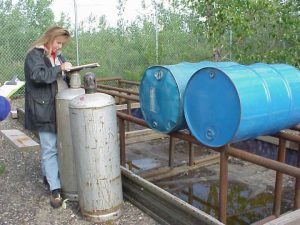 There is an increasing demand for environmental engineers in organizations. Environmental engineers serve a critical role by planning and performing engineering responsibilities in order to prevent, control and manage environmental health hazards.
There is an increasing demand for environmental engineers in organizations. Environmental engineers serve a critical role by planning and performing engineering responsibilities in order to prevent, control and manage environmental health hazards.
Their work functions include conducting research on hazardous waste management, designing and implementing systems for water supplies, and assessing the potential impact of proposed construction projects on the environment.
Here are some important projections and trends for this essential environmental job role from EHS Daily Advisor:
- The median salary for environmental engineers is changing across states. Nationwide, the median salary for environmental engineers increased just 0.49% from 2016 to 2017. This job role is paid the highest in Alaska, but South Dakota saw the largest percentage increase in median income, rising from $71,845 in 2016 to $91,535. The lowest median income is in Georgia, while New Mexico had the biggest drop in salary, decreasing from $107,272 in 2016 to $89,426 in 2017.
- Employment of environmental engineers is rising. Employment of this critical job role is projected to increase by 8 percent from 2016 to 2026, according to the Bureau of Labor Statistics (BLS). This is about average across all occupations.
- Water issues are increasing the demand for environmental engineers. The growing concerns of state and local government regarding water availability and quality boost the need for environmental professionals. Environmental engineers are required to provide professional, scientific and technical services to increase the efficiency of water use.
Additionally, wastewater treatment is becoming a bigger issue in areas of the United States where drilling for shale gas requires massive volumes of water. The EPA’s focus on cleaning up contaminated sites should continue to sustain the need for environmental engineers.
The BLS projects that environmental engineers will continue to be needed to help water treatment plants and utility companies stay in compliance with federal and state laws. As state environmental rules and their enforcement become increasingly important, environmental engineers who are well-versed in state-specific laws for multiple states will have an advantage when it comes to employment opportunities.
Adapted from: Is the Need for Environmental Engineers Growing?, EHS Daily Advisor, Clare Condon.